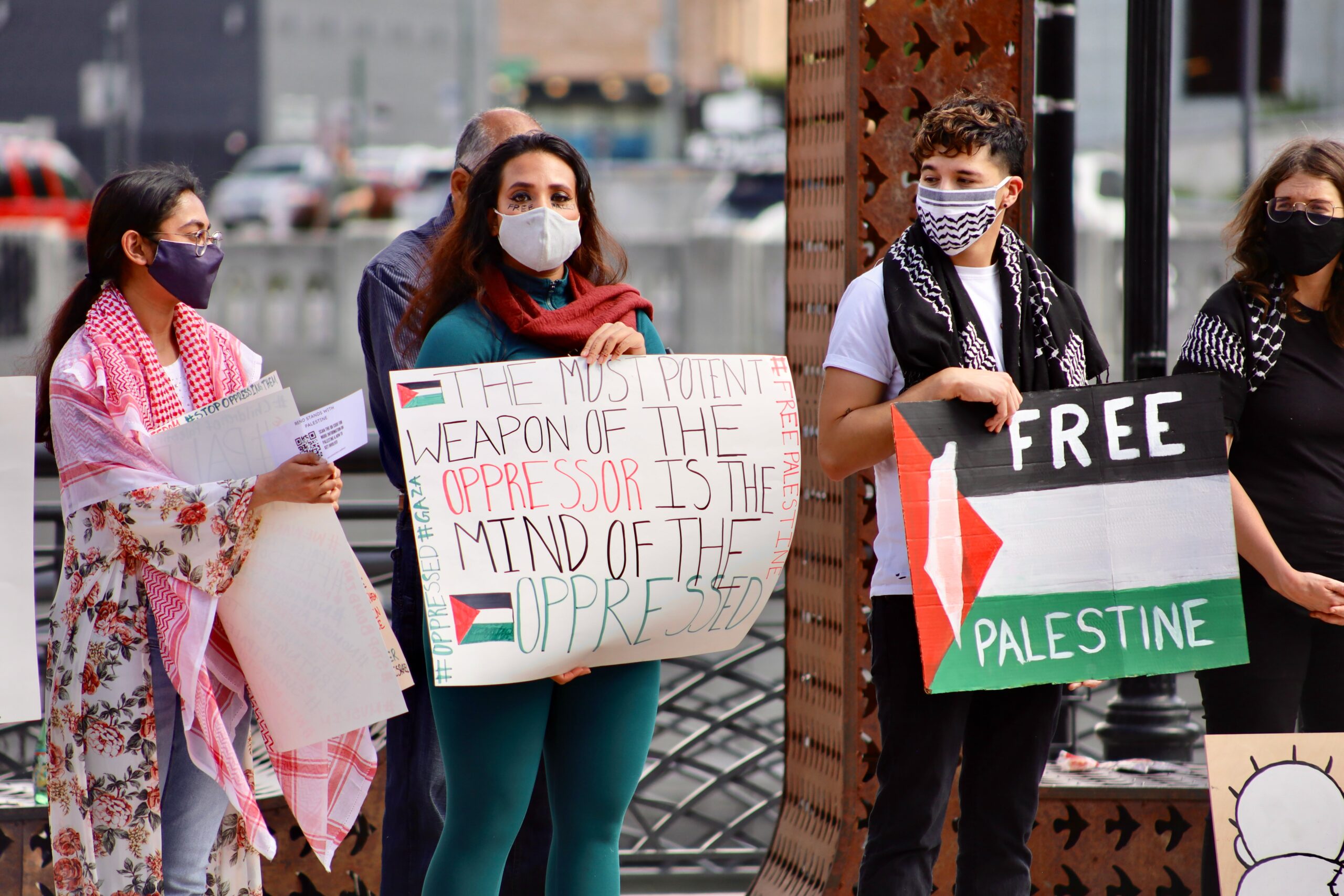IYAFP vehemently condemns the ongoing violence and loss of life in Gaza, considering it a matter of urgent concern. The indiscriminate targeting of civilian populations, including women, girls, and children, is unacceptable and goes against the principles of justice and humanity.
IYAFP stands in solidarity with the people of Palestine, advocating for an immediate ceasefire to halt the devastating impact on the health and well-being of the affected communities. Systems of oppression are interrelated, patriarchy and colonialism continue to oppress Palestinians and we stand in solidarity. We call on global leaders and international bodies to prioritize diplomatic solutions, support a ceasefire, and engage in dialogue to bring an end to the conflict.
Impacts of Continued Shortages
Continued shortages in Palestine are already resulting in increased risks for women and girls, including:
- Reproductive Health Complications: Limited access to reproductive health services and essential supplies is leading to complications during pregnancy, childbirth, and postnatal care.
- Infections and Health Issues: Insufficient water, hygiene, and sanitation facilities, coupled with a shortage of menstrual hygiene products, are increasing the risk of infections and other health issues affecting women and girls.
- Psychosocial Impact: The prolonged conflict and shortages are having severe psychosocial implications, including increased stress, anxiety, and trauma, particularly for survivors of sexual violence.
- Increased Vulnerability to Exploitation: Economic instability and limited resources are exposing women and girls to heightened risks of exploitation, including human trafficking and forced labor.

Addressing the Needs of Pregnant Women
Pregnant women in Gaza are experiencing immense challenges due to the conflict with Israel. The ongoing violence and airstrikes have led to widespread destruction, including damage to healthcare facilities and infrastructure. The war is placing expectant mothers in unstable living conditions, where suitable environments for childbirth are notably absent and the lack of access to prenatal care and emergency obstetric services increases the likelihood of complications during childbirth. Furthermore, the scarcity of postnatal support and inadequate neonatal care compounds the health risks faced by both mothers and newborns, and the psychological toll resulting from conflict-induced stress further can elevate the potential for adverse maternal and fetal outcomes. Malnutrition, aggravated by food insecurity, poses additional threats to fetal development and maternal health, painting a complex picture of challenges faced by pregnant women in conflict zones.
Displacement, Water Scarcity, and Inadequate Hygiene
The forced migration also exacerbates the obstacles encountered by those seeking sexual and reproductive health and rights (SRHR) services. Families residing in overcrowded makeshift shelters grapple with a pronounced lack of privacy and sanitary facilities, heightening the risks of reproductive health issues and the spread of infections. Beyond healthcare, pressing concerns encompass access to clean water, sufficient hygiene facilities, and privacy, which are pivotal determinants of overall health and well-being. The intricate interplay of these challenges underscores the urgency for comprehensive interventions addressing the multifaceted issues faced, particularly by pregnant women, in conflict-affected regions.
Menstrual Hygiene Products
In addition to the broader issues of water scarcity and inadequate hygiene, the availability of menstrual hygiene products is a critical aspect of women’s and girls’ health often overlooked in conflict situations. The current war is making it challenging for women and girls to access essential menstrual hygiene products, leading to increased health risks, discomfort, and potential stigma. The persistent shortage of such products can lead to infections, reproductive health complications, and a deterioration in overall well-being.
International Responsibility
Addressing the SRHRJ needs in conflict zones requires a concerted international effort. The global community must ensure humanitarian aid prioritizes the specific needs of women and girls, along with children and marginalized communities in Palestine. It is imperative to ensure that funding and resources are allocated to rebuild and strengthen healthcare infrastructure, support services, and provide essential supplies like menstrual hygiene products. Only through a collaborative effort on the global stage, we can build a future where the rights and well-being of all individuals, regardless of their circumstances, are protected and upheld.
